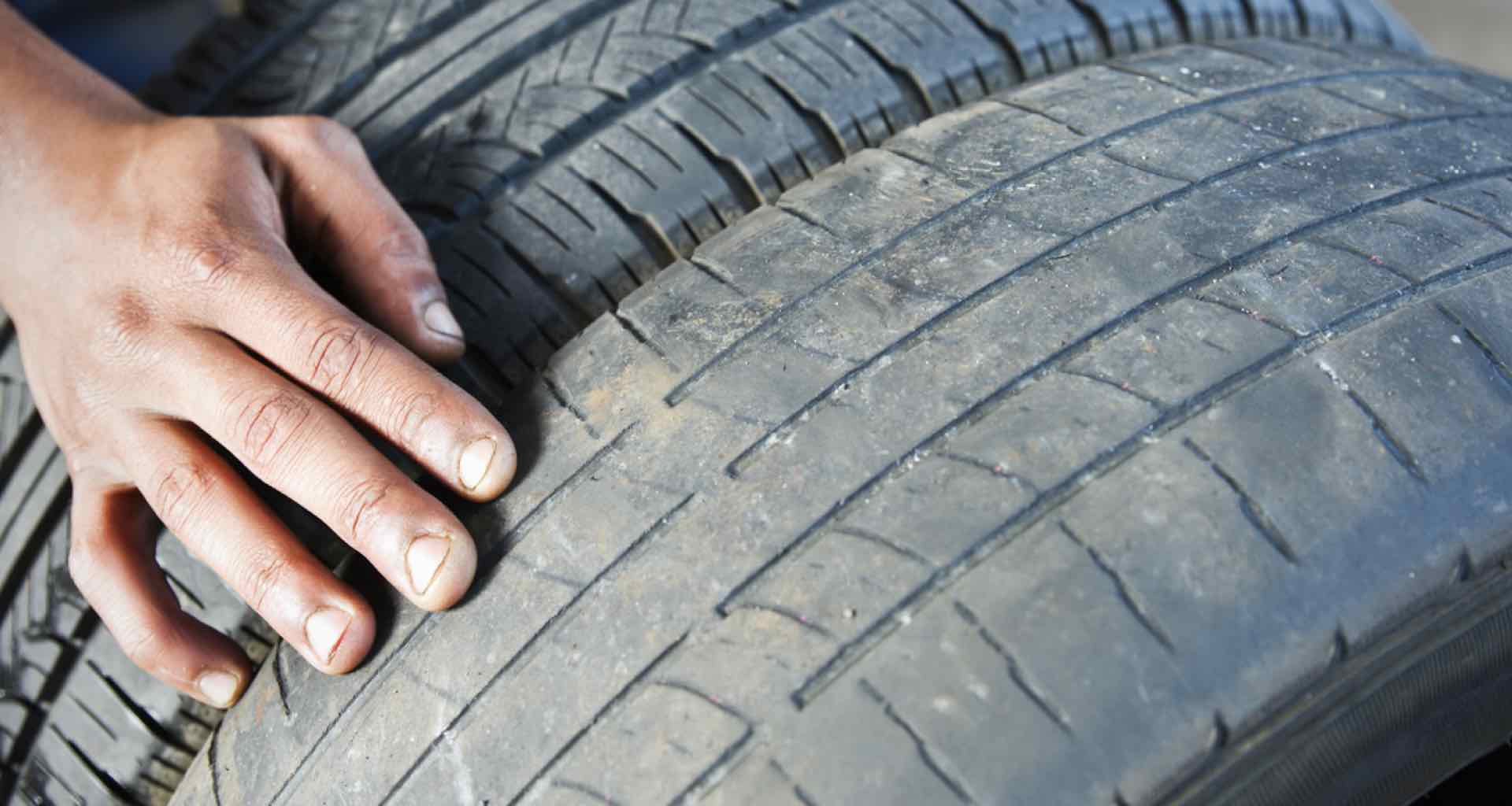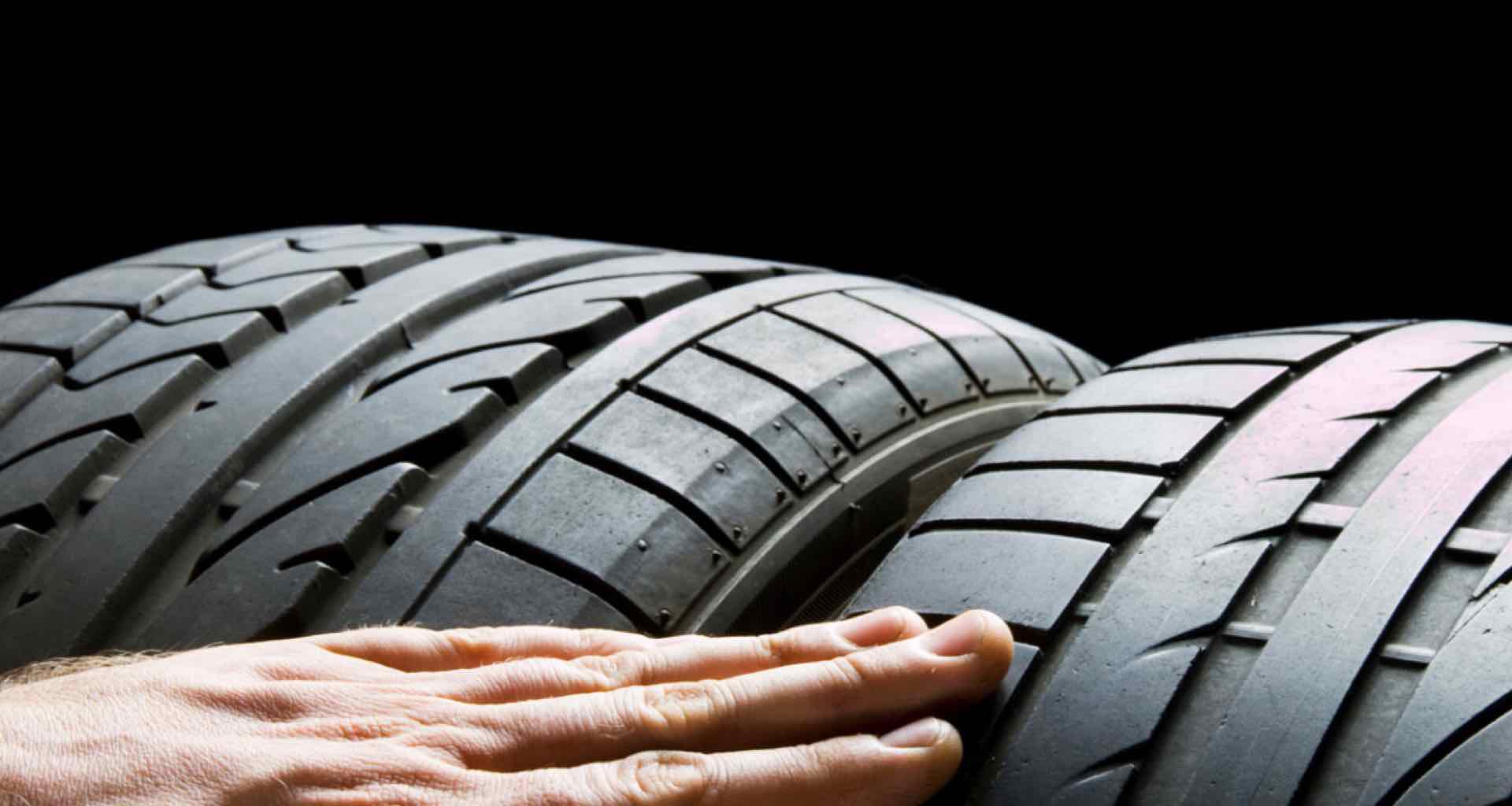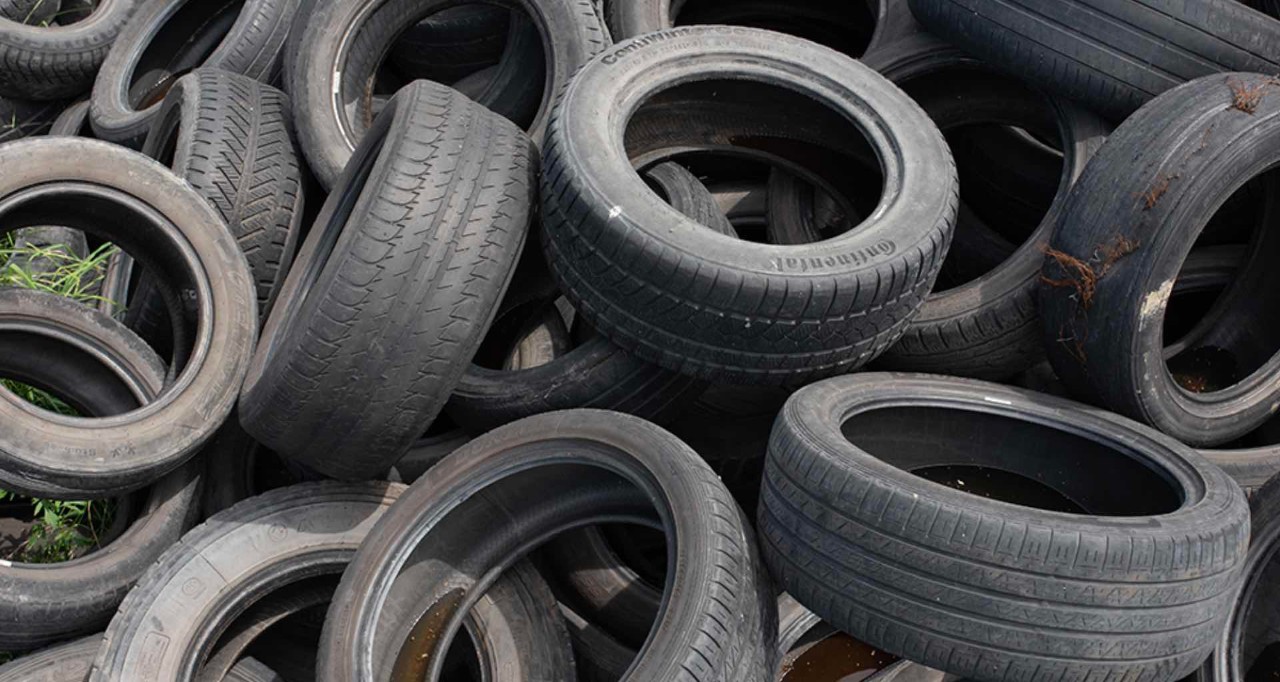You have no items in your shopping cart.
The importance of buying new tyres and how to choose them?
Cars are complex machines with numerous parts that work together to provide a smooth and efficient driving experience. However, like all machines, cars require maintenance and parts replacement over time. Consumable parts in a car refer to those components that wear out with use and need to be replaced periodically. These parts include things like brake pads, spark plugs, filters, and of course, tyres.
Out of all the consumable parts in a car, tyres are the most frequently replaced. Tyres are the only parts of the car that come into contact with the road, which means they endure a lot of wear and tear. Over time, tyres lose their tread depth, which can affect their ability to grip the road and handle corners safely. In addition, tyres can develop punctures, leaks, and other forms of damage that can compromise their performance and safety.
Most drivers replace their tyres every few years, or whenever they notice signs of wear or damage. The lifespan of a tire depends on a variety of factors, including the type of tire, the quality of the tire, the driving conditions, and the maintenance practices of the driver. As a general rule, tyres should be replaced when the tread depth reaches 2/32 of an inch or less, or when the tire shows signs of damage, such as cracks, bulges, or punctures.
In addition to regular tire replacement, drivers should also practice good tire maintenance to help extend the life of their tyres. This includes things like checking tire pressure regularly, rotating tyres periodically, and avoiding overloading the car or driving aggressively, which can put extra strain on the tyres.
How long do car tyres last?
The lifespan of a car tire depends on a variety of factors, including the quality of the tire, the driving conditions, and the maintenance practices of the driver. As a general rule, most tyres last between 40,000 and 80,000 kilometers, or about 3 to 5 years. However, some tyres can last significantly longer if they are well-maintained and used under ideal conditions. Moreover, high-mileage car tyres like the Apollo Amazer 4G and Alnac 4G car tyres are known to last over 1,00,000 kilometers. These tyres are among the most reliable car tyres for hatchbacks and sedans in India.
But most car tyres last about 50,000 kilometers of regular use on Indian roads. As our roads can have a significant impact on the lifespan of car tyres due to their challenging conditions. Some of the ways that Indian roads can affect tire life include:
Potholes and uneven surfaces: Indian roads are notorious for their potholes and uneven surfaces, which can cause tyres to wear out faster. When tyres hit potholes or encounter uneven surfaces, they can become damaged or develop flat spots, which can affect their performance and lifespan.
Extreme temperatures: India experiences extreme temperatures throughout the year, with hot summers and cold winters. These temperature changes can cause the rubber in tyres to expand and contract, which can lead to cracking and other forms of damage.
Dust and debris: Indian roads are often dusty and littered with debris, which can get into tire treads and cause them to wear out faster. In addition, debris on the road can cause punctures and other forms of damage to tyres.
Heavy traffic: Indian roads are often congested with heavy traffic, which can put extra strain on tyres. Stop-and-go driving, frequent braking, and idling can all contribute to faster tire wear.
Also, tyres are perishable products and like other perishable items tyres too have a shelf life. As rubber degrades over time, it's generally recommended to replace tyres that are 6 years or older, even if they haven't been driven very much. Tyre manufacturers typically recommend replacing tyres after 6 years, regardless of their mileage, to ensure optimal performance and safety. This is especially important for tyres that are used in high-stress situations, such as on hot or rough roads.
9 SIGNS IT'S TIME TO BUY NEW TYRES
As tyres get older and the tread wears, they lose their grip and become less dependable during braking and acceleration.


Knowing when to replace your tires is an important part of vehicle maintenance, as worn-out tires can be dangerous and can affect your vehicle's performance. Here are nine signs that your car tyres need to be replaced:
Tread wear: If the tread depth on your tyres has reached 3mm or less, it's time to replace them. Worn-out tyres can be dangerous and affect your vehicle's performance.
Cracks or bulges: Any visible cracks or bulges on the tyre's sidewall are a sign that the tyre should be replaced immediately.
Punctures: If your tyre has a puncture that can't be repaired, it's time for a new tyre.
Age: As mentioned earlier, tires can deteriorate over time, even if they haven't been driven much. It's generally recommended to replace tires that are 6 years or older, regardless of their mileage.
Vibration or shaking: If you feel vibration or shaking while driving, it could be a sign of tyre wear or damage.
Poor handling: If your vehicle is not handling as well as it used to, or if it feels like it's pulling to one side while driving, it could be a sign that your tyres are worn out or damaged.
Uneven wear: Uneven wear on your tyres could be a sign of alignment or suspension problems, or of improperly inflated tyres. Either way, it's a sign that your tyres need to be inspected and possibly replaced.
Squealing noise: If you hear a high-pitched squealing noise while driving, it could be a sign of worn-out or damaged tyres.
Reduced fuel efficiency: If you've noticed a decrease in your vehicle's fuel efficiency, it could be a sign of tyre wear or underinflated tyres. Either way, it's worth having your tyres inspected to rule out any issues.
If you notice any of these signs, it's important to have your tyres inspected by a professional mechanic or at an Apollo Tyres Shop to determine whether they need to be replaced.
The frequency of tyre changes: How often should you replace your tires?
The frequency of tyre changes can vary depending on several factors, such as the type of vehicle, driving habits, road conditions, and the type of tyres being used. Based on your driving style and roads in your city or state, you can refer to the three scenarios given below to determine the frequency of tyre changes.
You are a careful driver:
You are a careful driver and there are good roads and moderate weather conditions in your area. In this case, you can get the max tyre mileage and may have to replace tyres once in 5 years.
You drive normally:
You generally drive at normal speeds but like to go for a spin occasionally. The roads in your area are in good to average shape. In this case, you might wear down the tyres a bit faster and may need a tyre change every 3-4 years.
You are an enthusiast:
You are a speedster who likes to weave in and out of traffic and has an adventurous spirit. The roads you take are unexpected, and sometimes unexplored. Well, you might have to buy new tyres every couple of years.
Apart from driving style, regular vehicle maintenance also plays a part in tyre life. Vehicles with well-maintained suspension setups are bound to offer more tire mileage. But if you haven't had a wheel alignment and wheel balancing check in ages, your tyres might be paying the price.
Average Cost of tyre replacement in India
The cost of car tyre replacement in India can vary depending on several factors such as the brand of the tyre, the size of the tyre, and the type of vehicle. On average, the cost of replacing a single tyre in India can range from around ₹2,000 to ₹6,000 or more, depending on the factors mentioned above.
For example, a basic small-sized tyre for a hatchback car can cost around ₹2,000 to ₹3,000, while a larger tyre for a SUV or luxury car can cost upwards of ₹5,000 or more.

The cost of replacing all four tyres in India can range from around ₹8,000 to ₹25,000 or more. For example, a set of four basic small-sized tyres for a hatchback car can cost around ₹8,000 to ₹12,000, while a set of larger tyres for an SUV or luxury car can cost upwards of ₹20,000 or more.
People buy used car tyres to save money
Some people may choose to buy used car tyres in order to save money. However, it's important to consider the potential risks and downsides of doing so.
When buying used tyres, it can be difficult to determine their exact condition and history. The tyres may have been previously damaged, punctured, or worn out, which could compromise their safety and performance on the road. Additionally, the age of the tyre can also affect its safety and performance, as rubber degrades over time and can become less effective at providing traction and handling.
Furthermore, there may be legal and safety concerns surrounding the use of used tyres. Some countries have regulations regarding the sale and use of used tyres, and using tyres that do not meet safety standards could result in fines or other penalties. In addition, using unsafe or unreliable tyres could put you and other drivers on the road at risk.

5 Downsides to buying used car tyres:
- There is no way to find out the usage history of a second hand car tyre.
- There might be invisible tyre damage that you cannot detect with naked eye. Even if a used tyre looks good as new, there might be structural issues that can turn into a road hazard.
- Buying used car tyres for vehicles driven in extreme climates is never a good idea. Extreme heat or cold can bring out underlying tire damage and risk your safety.
- There is no tyre warranty to cover your investment if the used tire turns out bad.
- The local shop owner might be trying to make a quick profit and sell a sub-par product.
While buying used tyres may seem like a cost-effective solution in the short term, it's important to weigh the potential risks and downsides before making a decision. In many cases, investing in new, high-quality tyres can provide better safety, performance, and value in the long run.
Things to remember when buying new tyres
Buying new tyres comes with its own worries. Do you replace the old tyres with exact same model or do you upsize? Or should you try mixing and matching car tires for performance gains? Here are five things to remember when buying new tyres:
- The best way forward is to find tyres that match your carmakers specifications.
- If you are planning to upsize car tyres, always adhere to the 3% rule. Which means the new tyre's diameter should not be more than 3% of the stock tyres.
- Where a lot of regular city or highway driving is involved, buy high-mileage car tires. These tires have less rolling resistance and will last longer than most stock tires.
- If your driving includes frequent highway runs, than investing in low road noise tyres with good traction makes more sense.
- And if you are an off-roader, buy puncture resistant tyres with greater tread depth.
The tyre brand also matters when you are buying new tyres. Buying cheaper tyres will undermine mileage and performance and pose road safety risks. Similarly, a local brand is bound to offer more value and performance in comparison to imported tyre brands. Because the homegrown tyre brand knows the road condition, weather, and local driving habits.
Concluding thoughts
While you may have to buy a used tyre in an emergency, buying new tyres is always the recommended solution. To go the distance with confidence and safety, always buy new tyres when your old tyres run out of steam. Buy tyres from established brands in your country, for they are most likely to provide the best product and service. Also, make regular tire inspection a habit before you drive to make sure you know when it’s time to buy new tyres. Finally, look for tyre brands that offer unconditional warranty and road hazard protection as part of the package. It will help safeguard your investment and reduce the frequency of tyre changes.
Apollo Amazer and Alnac 4G Tyres
up to 1 Lakh kilometer mileage 👇🏻
Looking for New Car Tyres?
visit shop.apollotyres.com
